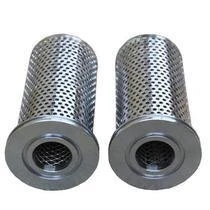 Tel:
+8615930870079
Tel:
+8615930870079
Aug . 07, 2024 17:40 Back to list
High-Performance Stainless Steel Filter Elements for Enhanced Filtration and Durability in Various Applications
Stainless Steel Filter Elements A Comprehensive Overview
In the world of filtration, stainless steel filter elements have established themselves as indispensable components across various industries, including pharmaceuticals, food and beverage, chemical processing, and water treatment. Their unique properties and advantages make them a popular choice for many applications requiring high-quality filtration.
What Are Stainless Steel Filter Elements?
Stainless steel filter elements are components made from stainless steel that are used to separate solids from liquids or gases. Typically designed in various shapes and sizes, these filter elements can be configured as mesh screens, disc filters, or cartridge filters, depending on the specific needs of the application. The versatility of stainless steel as a material allows for the creation of filters that can withstand harsh conditions, high pressures, and extreme temperatures.
Key Properties and Advantages
1. Corrosion Resistance Stainless steel is known for its excellent resistance to corrosion, particularly in environments where the filter elements are exposed to moisture and chemicals. This characteristic extends the lifespan of the filter and reduces maintenance costs associated with replacements.
2. Durability Unlike plastic or other materials, stainless steel filter elements are robust and durable, capable of withstanding rigorous cleaning processes and mechanical stress. This durability makes them ideal for applications that involve frequent backwashing and cleaning cycles.
3. High Filtration Efficiency Stainless steel filters can achieve high levels of filtration efficiency due to their fine mesh or porous structures. They are effective in removing particulates and contaminants, ensuring that the final product meets stringent quality standards.
stainless steel filter element

4. Reusability Many stainless steel filter elements can be cleaned and reused multiple times, offering a sustainable solution for filtration needs. This reusability not only conserves resources but also reduces waste, making them an environmentally friendly option.
5. High-Temperature Resistance Stainless steel’s ability to withstand elevated temperatures makes these filter elements suitable for applications in high-heat environments, such as oil and gas processing and certain industrial applications.
Applications of Stainless Steel Filter Elements
The applications of stainless steel filter elements are vast and varied. In the food and beverage industry, they are often used in brewing and beverage filtration processes to ensure purity and prevent contamination. In pharmaceutical manufacturing, these filters help maintain strict hygiene standards, safeguarding the efficacy and safety of medications.
In chemical processing, stainless steel filters play a crucial role in the purification of chemicals, protecting downstream equipment from particulate damage and ensuring product quality. Similarly, in water treatment processes, these filters are essential in removing sediments and impurities, contributing to cleaner and safer drinking water.
Conclusion
In conclusion, stainless steel filter elements are a highly effective solution for a wide range of filtration challenges. Their inherent qualities—such as corrosion resistance, durability, and reusability—make them a preferred choice for many industries. As the demand for high-quality filtration continues to grow, stainless steel filter elements will remain at the forefront, delivering reliability and performance in various applications. Whether you are dealing with food products, chemicals, or wastewater, the benefits of utilizing stainless steel filter elements are clear, paving the way for cleaner, safer, and more efficient processes.
-
Types and Applications of Air Filtration CartridgesNewsJul.28,2025
-
The Role of Gas Turbine FiltersNewsJul.28,2025
-
Mastering Air Filter Cartridge UseNewsJul.28,2025
-
Advanced Turbine Filters for Modern Gas TurbinesNewsJul.28,2025
-
Cellulose Air Filter Cartridge Advantages in Dust FiltrationNewsJul.28,2025
-
Cellulose Filters for Air Particle ReductionNewsJul.28,2025

 Email:
Email:





